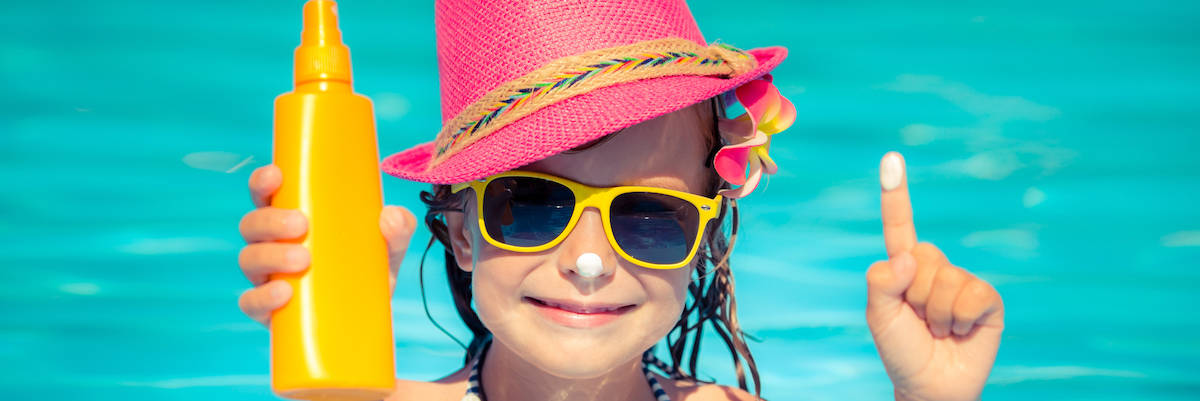
Many parents wonder what they need to do to care for their child’s skin. As children become old enough to develop their own habits, they need to know how to form a healthy skincare routine, which includes proper cleaning, moisturizing, and protection from harmful UV rays and insects.
What do I need to know about caring for my child’s skin?
Wash your child’s face with face wash. It can be convenient to use bar or body soap to clean your child all over, but we recommend finding a mild face wash. Bar and body soaps can dry out the delicate skin on your child’s face and disrupt natural oils.
Buy products that are free from fragrances and dyes. Many everyday products such as laundry detergents, shampoos, and lotions contain fragrances and dyes that can irritate a child’s sensitive skin. When possible, look for fragrance-free products or labels that say the product is designed for sensitive skin.
Protect your child’s skin from the sun. Childhood is a critical time for making sure that skin is not exposed to harmful UVA and UVB rays. In fact, if you’ve had multiple peeling, blistering sunburns during childhood, you’re much more likely to develop skin cancer in adulthood. One of the easiest ways to make sure your child’s skin is protected is to dress them in a hat and UV-blocking clothing when possible. If they’re playing outside, always apply a sunscreen with SPF 30 or higher, and re-apply every 90 minutes.
Moisturize often. Keeping your child’s skin moisturized is an important preventative step in making sure it doesn’t get irritated. Apply a fragrance-free moisturizer twice a day. If your child has eczema, which is very common, keeping skin moisturized is extremely important. Thicker moisturizer that comes in a tube tends to work better than the thinner formulas that come from a pump.
Ward off mosquitos safely. If you are in an area that has a lot of mosquitos, always make sure your child’s skin is protected to prevent itchy bites and the potential for diseases spread by the pest. The best way to protect the skin is to wear clothing that covers it — long pants and long sleeves. When that’s not possible, apply mosquito repellent with DEET before going outdoors. There are also clip-on repellants you can buy if you don’t want to use spray repellant. Just remember to keep repellant away from the eyes and nose, and never use DEET on an infant.
Disclaimer: This blog provides general information and discussion about medical, cosmetic, mohs, and surgical dermatology. The words and other content provided in this blog, and in any linked materials, are not intended and should not be construed as medical advice. If the reader or any other person has a medical concern, he or she should consult with an appropriately-licensed dermatologist or other health care worker.
